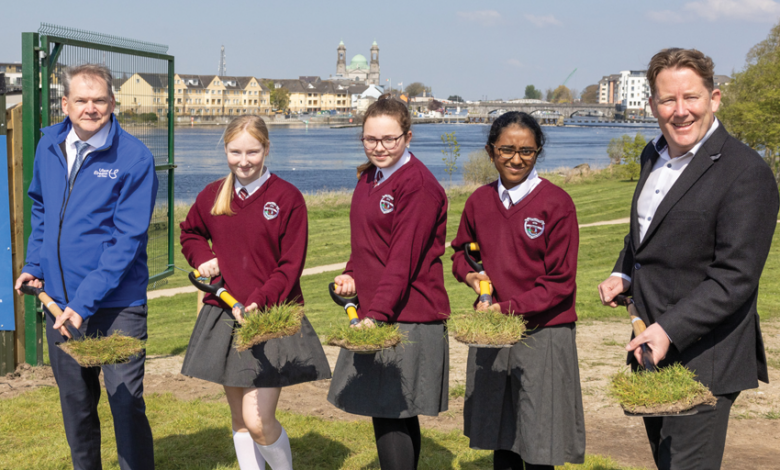Uisce Éireann: A national utility investing in communities

Uisce Éireann capital investment in 2022 totalled €1,061 million and the critical infrastructure provider will increase this investment further to €1.2 billion in 2023.
As one of Ireland’s most important infrastructure providers, Uisce Éireann’s capital expenditure on critical water and wastewater infrastructure exceeded €1 billion for the first-time in 2022, supporting key government policies, including the National Development Plan, Housing for All, and the Climate Action Plan.
“There is no doubt that the development of modern water infrastructure in a sustainable way is critical to Ireland’s future. A growing economy needs essential water infrastructure as much as it needs roads, hospitals, and energy generation. Along with hundreds of much needed local and regional projects across the country, we must also deliver generational national projects including the Water Supply Project – Eastern and Midlands Region and the Greater Dublin Drainage Project to support continued economic and population growth, and we must do this in a sustainable way,” says Uisce Éireann CEO Niall Gleeson, highlighting what this progress means for communities across the country.
“We are currently preparing our next price control submission to our economic regulator, the Commission for Regulation of Utilities, to set out the capital and operational spending we will need to deliver services and infrastructure from 2025 to 2029,” the CEO explains, adding: “We anticipate a significant uplift in our spending requirement to respond to the growing demands on Ireland’s public water utility.
“This is also reflected in our submissions to government for capital funding under the National Development Plan out to 2030. We have made huge progress with very strong funding and policy support, but we still face huge challenges in getting our services and infrastructure up to the standard Ireland needs to protect the environment and public health and enable sustainable economic growth.”
Key projects progressed during 2022 included the capacity upgrade at the Ringsend Wastewater Treatment Plant in Dublin Bay. Ireland’s largest treatment plant is responsible for treating 40 per cent of all public wastewater in the country and is being upgraded on a phased basis. Significant interim milestones are anticipated in 2023 and when completed in 2026, this project will help provide the required treatment capacity until the Greater Dublin Drainage project is commissioned and it will bring about a significant improvement in Ireland’s compliance with the Urban Waste Water Treatment Directive.
With pressure on housing showing no signs of easing, Uisce Éireann continues to deliver key water infrastructure to enable housing development and this remains a priority. Uisce Éireann’s water and wastewater capacity registers are now published on www.water.ie and have become a key tool to inform developers and planners which areas of the country have capacity for growth and development.
In 2022, the utility delivered a total of 15 new and upgraded water and wastewater treatment plants including the completion of five projects listed on the National Development Plan. Significant progress was also made to reduce leakage across the water network last year; leakage has now been reduced to 37 per cent nationally (from 46 per cent at the end of 2018) and Uisce Éireann is on track to reduce it to 25 per cent by 2030.
Despite significant improvements on drinking water supplies, boil water notices remain an unfortunate reality for some customers in order to protect public health. That said, over 67 per cent of boil water notices imposed in 2022 were rectified within 30 days and 187,000 tests were carried out to ensure water quality.
Furthermore, 11 water supplies serving more than 130,000 customers were removed from the EPA Remedial Action List of water supplies considered to be at risk, 13 older plants were rationalised, and more than 10,000 lead services were replaced. Communities with no wastewater treatment were connected to new treatment plants, existing plants were upgraded to improve the capacity and quality of treatment and more than 100km of sewers were rehabilitated or replaced.
“Customers expect and deserve the highest standard of service from us,” Gleeson says. “We are aware of the many challenges ahead, but we are developing the plans to deal with them and are making important progress to ensure that is the case now and into the future. Uisce Éireann is becoming the modern water utility Ireland depends on and we will continue to be critical to securing Ireland’s environmental and economic success,” he concludes.
W: www.water.ie





